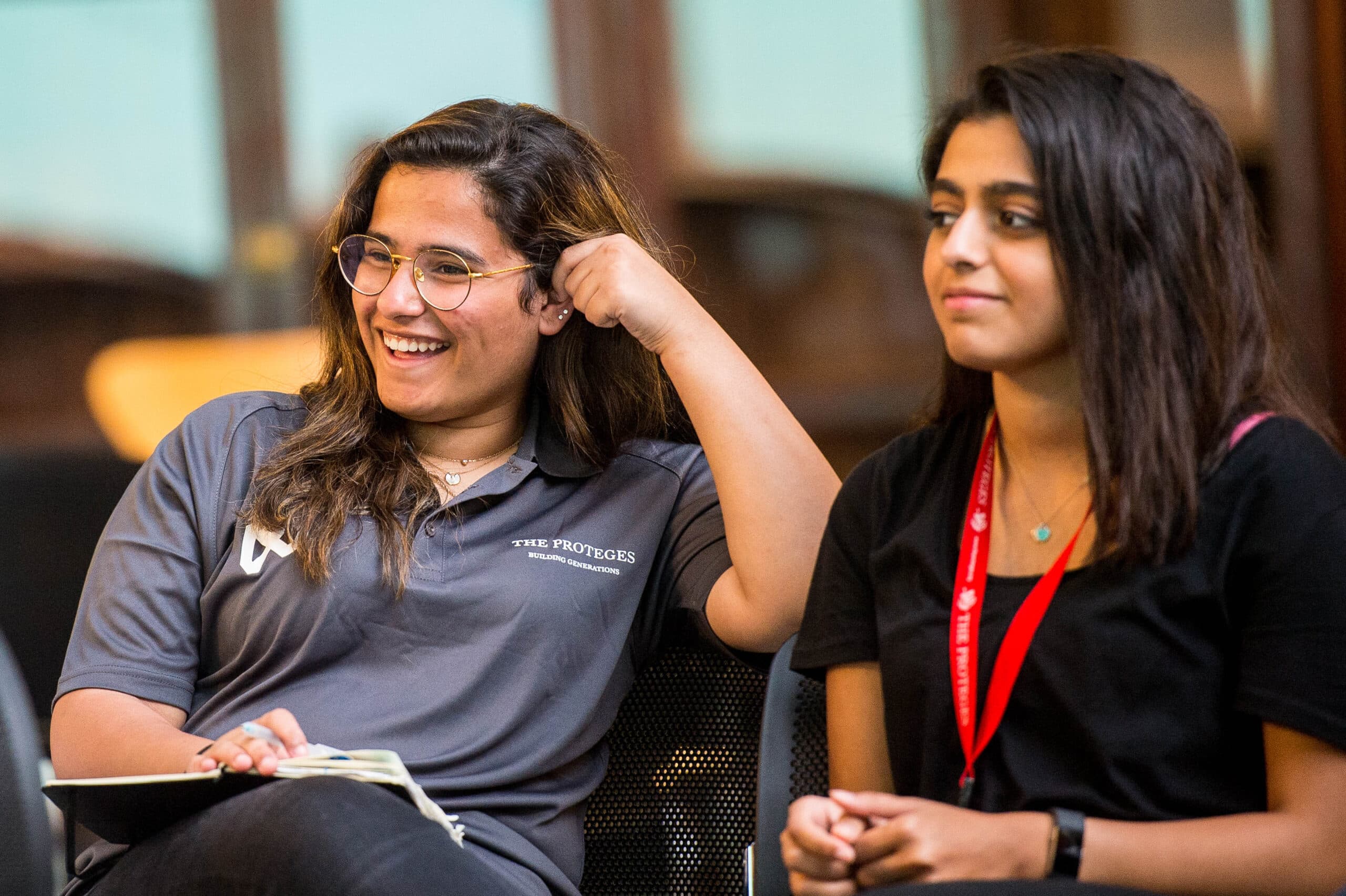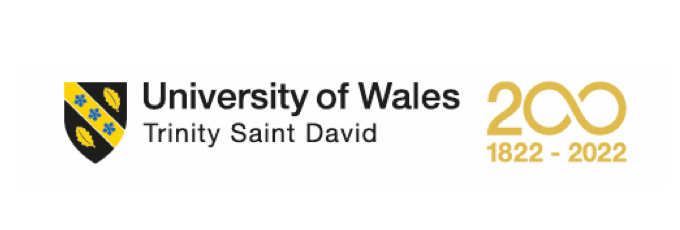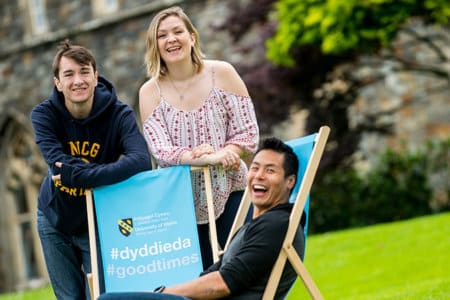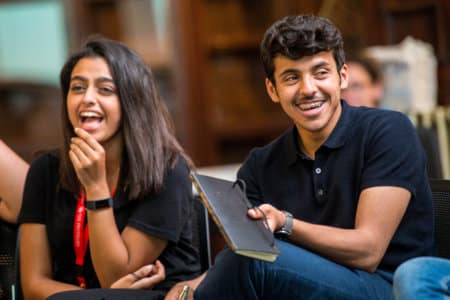Being able to communicate well is empowering. Born and raised in Mongolia, Khaliun Altansukh knew this all along. Since her youth, she envisioned herself one day teaching English to those in developing cities so that they may one day be able to communicate in English as well as their mother tongue. When it came time to obtain a degree that would allow her to do so, she knew she had to join the University of Wales Trinity Saint David (UWTSD). No other universities came close in their offerings. The university’s Teaching English to Speakers of Other Languages (TESOL) (MA) is renowned for its ability to nurture aspiring scholars towards professional success — and even doctoral studies.
Combining rigorous academic training, innovative teaching methodologies, and an emphasis on applied research skills, the programme equips students to confidently embark on a journey of discovery. It gives them the necessary tools to make groundbreaking breakthroughs in the realm of TESOL.
Much of this is due to the many opportunities to collaborate with other students and faculty on research projects. These encourage students to learn from each other and hone their research skills. It unlocks networking opportunities with other TESOL professionals, in turn, unlocking the chance for students to stay up-to-date on the latest trends in TESOL and find mentors for their future PhD research. What’s more, the MA TESOL culminates in a thesis-based research project.

The MA TESOL includes opportunities to collaborate with other students and faculty on research projects. Source: University of Wales Trinity Saint David
Its comprehensive nature makes the programme an apt choice for a variety of learners. For instance, Khaliun hopes to help others bridge gaps, break barriers, and open doors of opportunity through the power of communication. With each lecture/tutorial, she feels a step closer to achieving her goals.
“My favourite class was in ‘Key Issues in Linguistics’,” she enthuses. “This course not only covers every facet of Linguistics, but it also offers interesting assignments. I wrote about the concentric circles of world Englishes because it gave me the opportunity to explore many current and intriguing developments and changes in English in many circles.”
Other modules include “Methods and Approaches in the Study of Language and Literature,” “English Language Teacher Education,” “Current Theories of Second Language Acquisition,” and “Teaching EFL.”
Part One of the programme leverages a range of postgraduate teaching methods and approaches, such as formal lectures, group study sessions, smaller discussion groups, seminars, and one-to-one tutorials. Workshops and research seminars are frequent as well, drawing students from across the programme. Research-centric elements are introduced early on too, reiterating its benefits for all learners, irrespective of their interest in pursuing a PhD.
MA TESOL students are granted round-the-clock access to the Institute of Education and Humanities — a hub within a broad network of schools and colleges that creates an ideal setting for conducting research on language teaching and multilingual policy.
Supervision comes from UWTSD’s research-active teaching staff. Together and separately, they support various research themes and methodological approaches, including classroom-based action research, bi- and multilingualism theory, language development in early childhood education, translation studies, intercultural communication and language politics.
Exposure to such topics aims to challenge students. However, this programme’s educators are equally passionate about keeping students engaged. Khaliun credits Dr Jessica Clapham for being an endless source of motivation.

Senior Lecturer in Applied Linguistics Dr Jessica Clapham (right) has worked in the field of Applied Linguistics for 28 years in Sudan, China, Singapore and Wales. Source: University of Wales Trinity Saint David
“She always ensures that students fully comprehend the material being covered in lectures and her tasks are planned to prevent students from losing interest,” she says.
“This is a crucial consideration, in my opinion, since foreign students who study abroad are quite likely to have a sense of academic overwhelm in addition to other difficult transitions in their lives. Dr Clapham made sure, nevertheless, that students progressed gradually and gained confidence while working on various projects, including poster presentations, mini research proposals, and insightful essays.”
Such support makes it all the easier for students to fully embrace the unique experience of studying at UWTSD. The MA TESOL programme is delivered at the picturesque Lampeter campus, which is known for fostering inclusivity, support, and encouragement for living and learning. It’s a place where lifelong friendships are formed, new hobbies are explored, and societies of all sorts exist. It’s little wonder why Khaliun is proud to call it her second home.
“I made wonderful friends and acquaintances as soon as I arrived at the campus,” she enthuses. “Students here are incredibly kind and genuinely friendly. Quiz nights at the student pub, playing pool, and going to events held by Student Union helped me to expand my circle a lot. Also, the study room is cosy, and I enjoy sitting near the window where you can enjoy such a beautiful view of nature. Simply put, living on campus is peaceful, and you will always feel like you belong.”
Follow the University of Wales Trinity Saint David on Facebook, Twitter, Instagram, LinkedIn and YouTube.













